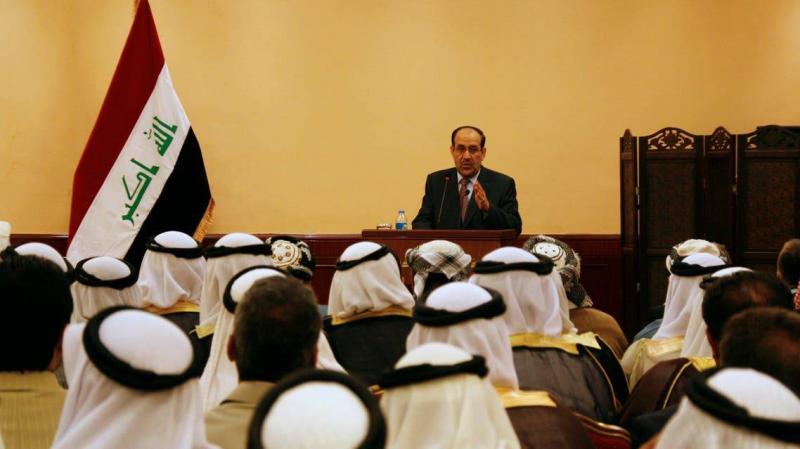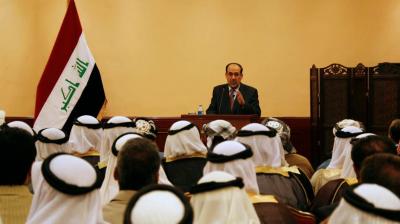As arrangements and efforts continue among Shiite parties (known as the coordination framework) in Iraq, reports indicate that a meeting will be held tonight, Sunday, at the house of the head of the State of Law coalition, Nouri al-Maliki. However, sources confirmed to Al Arabiya that three active political parties will be absent from this meeting, including the Sadrist movement, naturally, as well as the leader of the Wisdom Movement, Ammar al-Hakim.
Additionally, the "Taqaddum" coalition will refrain from attending the meeting, which is aiming to reach agreements and coalitions to form the largest bloc that will play a prominent role in establishing the next Iraqi government. Political sources clarified that Maliki seeks to understand the true intentions of his allies within the Shiite forces, specifically the Fatah Alliance and its position regarding the formation of a parliamentary bloc to confront the Sadrists, following the announcement of the final election results and their ratification by the Federal Court.
Maliki's concerns have been highlighted as he fears the disintegration of the coordination framework he leads if the Sadrists align with some representative forces to form a significant parliamentary bloc, leaving him isolated from the political equation. An analyst mentioned in statements to Al Arabiya.net that Sader has allied with "Taqaddum" and others to create an alliance for the largest bloc aimed at forming the next government.
It is noteworthy that the Sadrist movement, which topped the first place in the parliamentary election results, has recently made veiled criticisms of the political forces and the Iran-aligned Fatah Alliance, following the latter's skepticism about those results. Sadr now possesses strong leverage in the matter of choosing the prime minister after the gains he achieved in the elections; however, he still needs to coordinate with other political forces to form the government. The influential Shiite cleric secured more than 70 seats out of 329 according to the initial results announced by the High Electoral Commission, yet the prospect of him single-handedly choosing the prime minister remains unlikely.




